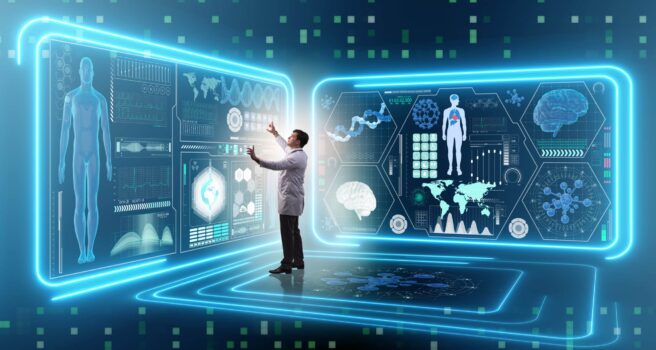41 Professionals Share Their Vision for the Future of Healthcare in the Next 30 years
We reached out to top professionals in the healthcare and technology arenas. Our question to them was how do they anticipate the future of healthcare to develop over the next 30 years. Will the future of healthcare be bright? We received a wide variety of answers – everything from technological advances to dealing with an aging population.
Disha Spath, MD

Dr. Disha Spath, MD, FACP, is a practicing primary care physician and hospitalist trained in Internal Medicine who works in Upstate New York. She is a graduate of the University of Georgia Honors Program, the Medical College of Georgia, and The University of Tennessee. Dr. Spath is the founder and CEO of The Frugal Physician, an award-nominated multi-media company that focuses on personal financial empowerment for healthcare workers. She hosts the podcast Finding Financial Freedom with The Frugal Physician. Dr. Spath also writes the Financial Fitness column for Practice Link Magazine. A contributor to NBC Universal, she is a White Coat Investor Ambassador, and Forbes and CNBC both featured her.
“Well I have no crystal ball, but it is not hard to anticipate we’ll see a lot more AI involvement in medicine. Currently, UpTodate serves as a quasi AI in decision making support. That will probably expand. Telemedicine has taken off during the pandemic and that will probably continue to expand as we move forward, hopefully with better tools to complete the examination remotely (i.e. a smartphone app that can pick up heart/lung sounds and get a rhythm strip, for example). There has been a movement to shift care from in hospital to in home for the elderly, which I am heartened by. I see the physician’s role in the future of healthcare as the one that brings all the data points and recommendations together to synthesize a cohesive plan.”
Latifat Akintade, MD

Dr. Latifat Akintade is a Gastroenterologist and also a Money Coach for women physicians. She combines financial education with life coaching. Her desire is to help women physicians create the life they want and practice medicine on their own terms. She is also the host of The MoneyFitMD podcast where they talk about all things money & mindset for women physicians.
“I believe more and more physicians will start their own clinical practice. We will continue to see the evolution of physicians as physician entrepreneurs.”
Stacey Chillemi

Stacey Chillemi is an entrepreneur, speaker, author, coach, and podcaster of the show, The Advisor with Stacey Chillemi. Top 10 Entrepreneurs at Apple News included Stacey as a Top Entrepreneur in 2023. Stacey was also recently featured in Insider, Business Insider, and Yahoo News, which went viral with 17 million views. Stacey is the founder of The Complete Herbal Guide and has had over 20 best-selling books published. She recently launched her new books, “Empower Yourself and Not Let Your Conditions Empower You,” “The Positivity and Gratitude Journal,” and the latest version, “Epilepsy You’re Not Alone.” Stacey writes for the Huffington Post, Huff Post, Thrive Global, and Medium. She has been a guest on the Dr. Oz Show, local news, and numerous radio shows and podcasts.
“I envision the future of healthcare in the next 30 years to be a mix of socialized medicine and private healthcare where everyone gets the basic health but any of the prime health would be on private healthcare.”
www.facebook.com/StaceyChillemi
Gary S. Donovitz, MD, FACOG
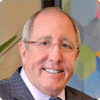
Dr. Donovitz practiced as a Board-Certified OB/GYN for 30 years. He is now a leader, speaker, educator, and advocate of hormone optimization. He is the Founder of Biote, a leading innovator in subcutaneous hormone pellet therapy. Dr. Donovitz received the Isadore Dyer award for best teaching resident while studying at Tulane University in New Orleans, Louisiana. He is a fellow of the American College of Obstetrics and Gynecology, a fellow of the Royal Society of Medicine, the Chairman of the International Consensus Committee on Testosterone Use in Women, and is the founder of the Institute for Hormonal Balance.
“By 2030, over 1.2 billion women – 14% of the global population – will be in menopause or post-menopause with hormone replacement therapy recognized as the most effective treatment for symptoms. Research consistently demonstrates the effectiveness of HRT in treating hot flashes, fatigue, low bone density and mental symptoms including brain fog and mood changes. An increasingly digitized society has demolished barriers to a previously taboo subject. In the next 25 years, demand for HRT will explode as women confidently reclaim a healthier, happier quality of life.”
“What is the future of healthcare?”
Chockalingam ‘Palani’ Palaniappan, PhD
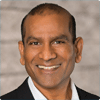
Chockalingam “Palani” Palaniappan, Chief Innovation Officer of Ortho Clinical Diagnostics, is responsible for driving a culture of innovation for Ortho’s global business, with a strong focus on enhancing product development productivity and processes and implementing creative commercial business models.
“When we think of the future of healthcare, it’s important to note that 70% of medical decisions derive from in vitro diagnostic testing. Less than half of the world’s population has access to standardized testing today, including for prevalent, devastating conditions like diabetes, hypertension, HIV, and TB. By 2050, with an expected world population of 11B, the demand for testing will be even greater.
I am confident that disruptive innovations such as sustainable, waterless, in vitro diagnostic systems will bring testing to the developing world, where a lack of infrastructure inhibits access. These systems can be placed anywhere that access to a clean water supply or plumbing is a barrier, such as in under-developed and remote areas. Helping more of the population get crucial diagnostic testing accelerates diagnoses and treatment, and this could have a tremendous impact on rates of chronic and infectious diseases globally.”
www.orthoclinicaldiagnostics.com
www.linkedin.com/company/ortho-clinical-diagnostics
Parastoo Jangouk, MD

Dr. Parastoo Jangouk is a double board-certified, Ivy-league school trained, internal medicine physician, gastroenterologist, gut health expert, and certified life coach. Dr. Parastoo helps professional women say goodbye to stress forever, leave fatigue behind, optimize their gut health and prevent disease, so they can truly enjoy the life they worked so hard to create.
“With big corporates and private equity companies dominating the field and taking over the ownership of healthcare, physicians will become employed beholding corporate jobs. Healthcare will become even more profit-oriented and physicians will be marginalized not having a say in treating patients. The amount of administrative work will increase more. As physicians give away the ownership of their practices, the physician pay and job satisfaction will decrease. Medicine won’t be considered a lucrative job anymore. I foresee a lot of physicians will leave medicine to seek independence, quality of life and better work morals. This wave already started and I believe we will see more and more physicians leaving in the next 5 years.
On the other hand, considering all above there won’t be any incentives left for young generations to get into medicine. In order to become a physician, one devotes the best years of her/his life studying/working hard, gets into the job market in their mid 30’s while having large amounts of student loans. This won’t make sense anymore. Therefore we will face a significant shortage of medical doctors on all fronts.
This is all inevitable and we need to start thinking hard about how we want to solve this serious issue. The pandemic already switched on physician burnout and dissatisfaction and it will only get worse. As physicians, we need to start brainstorming how we want to take our power back. We need to sit at the table. We cannot give up the ownership of medicine to people who don’t know anything about medicine. This is our lane.”
www.facebook.com/mindgutfitmd/
www.instagram.com/doctorparastoo
Related reading…Neurologist Job Outlook and Demand Trends
Berry Pierre, DO
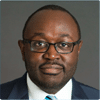
Dr. Berry Pierce is a board certified internist, podcast host, vlogger & national speaker.
“Medicine will become one of the most personalized forms of business over the next 25 years. Everything from who your doctor is, how you choose your doctor, and how you interact with your doctor will drastically shift towards the patient’s favor.
No longer will we have broad recommendations for patients in regards to treatments, preventative measures & recommendations as everything will be catered specifically to each individual.
Newer technologies will become the standard such as blockchain for data mining & storing, MRNA technologies will be common place and the rate we are able to process health information will become much faster. No longer will delays of care occur because we are waiting for information to act. Speed will be everything and professionals who do not adjust with the times will be passed over.”
www.facebook.com/drberrypierre
Lara McElderry
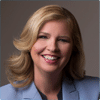
Lara McElderry is a life and relationship coach, podcast host and founder of Married to Doctors.
“Medicine will continue to be a challenging field. I see the public turning toward their own online sources instead of turning toward their doctors. The patient-doctor relationship is rocked as more and more patients seek out opinions for various situations and struggle to follow physician recommendations. Doctors feel pressured with large student debt, demanding hours, and a recent lack of public trust.
Despite all of this, I stay optimistic when I think of physicians and their families. I see them continuing to search for answers, truth, and cures. I see them being compassionate to those who could have worn a seatbelt or taken a Covid vaccine. Physicians are stigmatized as stand-offish and wealthy, but the stereotypes fall flat when you take time to visit one on one with physicians. I see physicians becoming more open about their concerns, their mental health and well-being, and continuing to serve us all by setting greater examples of self-care.”
www.facebook.com/marriedtodoctors
Read this: Exploring Beyond the Bedside: Diverse Career Paths for Non-Clinical Physicians
Stephen Noble, MD, FACS
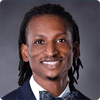
Dr. Stephen Noble is a cardiothoracic surgeon and Lead Medical Advisor at Live Chair Health.
“In the next 25 years I envision and anticipate medicine to deliver care that is more personal. This personal care will be driven by data and metrics geared for the individual patient. Healthcare will feature more integration with artificial intelligence. Robotic-assisted telesurgery featuring a surgeon being able to operate from a remote location while the patient is located miles away will be possible. Delivery of care will be infused into every day life. Imagine, going to a place of wellness where one is able to get personal care services (ie haircut), see a healthcare provider virtually, fill prescriptions, and buy groceries according to a personalized health plan – all by the time they leave this place of trust.”
Ericka Goodwin, MD, DFAPA

Dr. Ericka Goodwin is on a mission to help you Be Better, Do Better, and Live Better. She is a Harvard-trained, double board-certified psychiatrist, bestselling author, top-rated speaker, integrative lifestyle coach, and creator of the hit series, “Better with Dr. Ericka.”
“I see 3 major changes happening in medicine in the next 25 years.
- Mental health will be more of a priority due to the decompensation and lost mental/emotional capacity over this season of the pandemic and heightened awareness of racial injustice. The value of mental health can no longer be denied and this will continue to increase.
- Telehealth will continue to expand due to the convenience for healthcare providers and increased accessibility for patients.
- Significant physicians will leave the clinical workforce forcing the medical infrastructure to change and become more considerate of the value of physicians.”
www.instagram.com/doctorericka
Dan Raffi, PharmD, MBA
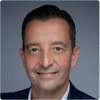
Dan Raffi holds a Pharm. D and an MBA. He is a veteran of the healthcare industry with more than 25 years of experience amid 10 years in executive ones. Dan worked for Allergan (Abbvie) and Medtronic. He recently joined Sim&Cure, a start-up focus on designing AI software for Endovascular procedures, as Chief Operating Officer.
“When I reflect about the development of medicine within 25 years, I foresee the generalization of (AI) artificial intelligence as a standard of care. This will drastically transform surgery and drug delivery and will improve performance and safety of treatments. These AI softwares will interviene along the care continuum, for the diagnostic process (i.e: aneurysm search), during the surgery itself (i.e: Sim&Cure), and finally in the patient follow up. This revolution will drive earlier diagnostic, better surgeries and targeted drugs, and better care follow up. The doctor’s decisions and performance will be constantly driven by data which will ensure consistency of ART and reduce human mistake risk in the decision making process. This is going to be a major milestone for patients and HCP.”
www.linkedin.com/in/dan-raffi-749117b
Jennifer Simpson

Jennifer Simpson is the Director of Communications at Physicians Working Together.
“We must do the work now to secure the future of medicine. Our medical communities are in crisis as the percentage of physician shortages continue to rise in the country. America’s environment of uncertain healthcare futures mixed with the terrors of COVID-19 can easily dissuade the potential interest of physician hopefuls. If we fail to invest in the future of medicine, the next 25 years in healthcare could be a nightmare.
Future doctors need assurance, and medical students need support. Groups like Physicians Working Together focus on medical student mentorship and scholarships. Med students who are currently in matriculation are vital to the success of the future of healthcare. We need more advocacy for programs that support the ones who are responsible for keeping us well.”
www.physiciansworkingtogether.org
“If we fail to invest in the future of medicine, the next 25 years in healthcare could be a nightmare.”
Archana Shrestha, MD, MS

Dr. Archana Shrestha is the Co-Founder & Chief Wellness Officer at Women in White Coats.
“Medicine in the next 25 years will be a field with predominantly women doctors practicing all specialties of medicine even those that at this time are traditionally “male dominated” fields such as surgery. Women doctors will be recognized for their inherent strengths and will be in more leadership positions as department chairs, chiefs, deans, medical directors and CMOs. Those leaders will find a way to make the physician lifestyle more family-friendly and conducive to physician wellness.”
Nicole Washington, DO, MPH

Dr. Nicole Washington is a board certified Psychiatrist, speaker, author, and consultant who has always had an affinity towards working with populations who aren’t typically consumers of mental health services. This focus on population health led her to complete a Masters of Public Health with emphasis in policy and administration.
“In the next 25 years, I am hopeful that we will move away from mental health being seen in terms of behavioral issues or non-medical conditions. Mental health conditions are just as much medical as diabetes or heart disease and if we can treat them as such, I really feel that we may be able to overcome some of the stigma associated with mental illness.”
Roy Cohen
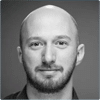
Roy Cohn is a neuroscientist and marketing expert, Co-founder and CEO of Behavidence, the missing link in helping people achieve optimal mental health. He has been an industry disruptor for over two decades with strong expertise in business development and growth through digital marketing. His disruptive nature led to an innovative model for the understanding and research of autistic spectrum disorder, a revolutionary approach to glial cell-based research of epilepsy, and one of the most disruptive frameworks for machine learning-based growth at Facebook. Roy founded Quantum brands, and he has held multiple leadership roles at Vidmob and Wix.
“Medicine is heading into an era of personalization. Identifying and measuring mental or physical health in real-time is the future.
We see it in diabetes care, where patients now receive real-time feedback on blood glucose levels for accurate insulin injections. Personalized oncological treatments for unique types of cancer are another example.
Behavidence has been able to bring this same type of approach to mental health. By identifying conditions in real-time, removing biases, and providing a daily score to our users, we enable a preferable same-day solution for patients based on their respective needs. The amount of time users spend on mobile devices generates passive, and unbiased behavioral patterns that we use to score mental health.”
www.linkedin.com/in/oy-cohen-strategic
Sam Yang

Sam Yang is the co-founder and Managing Director of Xandar Kardian, a Toronto-based company that empowers digital automation via proprietary radar technology to improve professional care. Prior to founding Xandar Kardian, he also co-founded Kairos Wearables and Zenesis Electronics. Sam Yang completed his education from Earl Haig SS and the University of Toronto.
“The recent pandemic catapulted healthcare innovation to new heights at a rapid pace. One category that was shaken up is home health care. While the hospitals were getting overwhelmed with COVID-19 patients, many at-home patients were left to monitor their own health remotely. We feel that the future of healthcare in the next 25 years will focus on providing continuous, autonomous and intelligent health monitoring from home in order to provide early intervention and care.”
www.linkedin.com/company/xandarkardian
“…the future of healthcare in the next 25 years will focus on providing continuous, autonomous and intelligent health monitoring from home in order to provide early intervention and care.”
Naama Stauber Breckler

Naama Stauberr Breckler is the co-founder and CEO of Better Health.
“Our healthcare system was designed to meet the demands of care, rather than to prevent the utilization of care entirely. This served to benefit the providers and payers, yet often excluded the needs of patients. We believe this will continue to shift, as patients are far more empowered than ever to be agents in their care and technology companies are enabling this change to happen faster. We are beginning to shape a future in which more alignment across stakeholders is met (e.g. value based care), and where patients drive the types of services being created. In parallel, we believe we’ll continue to see more care solutions created outside the traditional brick and mortar facilities, and move online and into the homes and communities of patients.”
www.linkedin.com/in/naamastauber
Cynthia Ambres, MD, MS

With more than 30 years as both a practicing physician and a healthcare executive, Dr. Ambres joined Kate Farms to lead their clinical strategy and research initiatives and oversee their team of clinical nutrition managers. She’s an entrepreneurial dynamo who has run a successful consulting company specializing in provider and payer transformation, has twice served as the Chief Medical Officer, once at Blue Cross Blue Shield of Northeastern and Western New York, the second at Kaleida Health. She was in the Global Center of Excellence at KPMG’s Global Healthcare group. She got her medical degree at Mount Sinai School of Medicine, earned a Masters degree in Health Policy and Management at New York University and did her post-doctoral surgical internship and fellowship at St. Vincent’s Hospital.
“We are seeing a growing movement toward the use of lifestyle medicine, the incorporation of a plant-forward or plant-based diet, exercise, and a focus on mental health support. Nutritious food options will be more accessible for everyone, with providers and payers and communities supporting the overwhelming evidence that shows how plant-based diets can reduce the risk of chronic diseases. Each of us will be part of a team – with our health care providers, registered dieticians, health coaches, work-out buddies, and mental health workers – all supporting our personal journeys toward better health and richer lives.”
Ikenna Okezie, MD, MBA

Dr. Ikenna Okezie is the Chief Executive Officer and Co-Founder of Somatus, the market leader in value-based kidney care. He founded Somatus in 2016. His purpose was to introduce a preventive and more holistic solution for patients facing kidney disease. Dr. Okezie graduated cum laude from Yale University with a BA in Economics and continued on to receive his MD from Harvard Medical School and his MBA with Honors from Harvard Business School.
“In 25 years I anticipate the individual pursuit and value of health will continue to be so important as to produce systems which yield the most efficacious care possible, while attempting to control the costs of the very systems that are being produced. In that future I envision payors will have a disproportionate focus on paying for value of care, caregivers will demonstrate proven, technology-powered expertise in maximizing the volume of value-based care, and patients will realize and wield the magnitude of their economic power as a consumer of healthcare products and services.”
www.linkedin.com/company/somatus
Safwan Khan
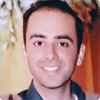
Safwan is founder of Startupily and runs a shockwave therapy health clinic.
“The future of healthcare is moving towards technology of constantly monitoring body vitals and now using tech to identify diseases in the body. This all may be fine but in my opinion I think it actually is not a good way forward.
From my experience I have noticed that people who wear health wearable tech like watches or use health apps are constantly monitoring their health vitals and if there is a slight change they panic which releases their stress hormones which can cause health issues in the long run.
I firmly believe that food is the disease and food is the medicine. Unfortunately our foods are contaminated, poisoned and is the only reason to why we suffer from health issues. If we can only just focus on getting our diets right, eat natural foods, stay away from sugar, processed foods and chemicals our bodies and organs will function better.
Every single disease; be it brain, heart, kidney etc all starts from the digestive system (gut). If you have a toxic and acidic gut then you will be sick. People need to be educated about this. Improve your digestive health (gut, colon) and keep your body alkaline and you will not have serious health issues.”
Yousun Allen

Yousen Allen is the CEO at Yosun UV Printer.
“Throughout the following 25 years, genomic-driven investigation will keep on expanding the effect of customized medication in medical care around the world. Accuracy medication will keep on conveying its new worldview in disease care and arrive at more patients. Immunotherapy will follow through on its guarantee to destroy malignancy’s ordnance across growth types.
I additionally expect that AI will assist with directing the improvement of exclusively coordinated with treatments, the bridling and trade of huge information, and advances in telemedicine to carry significant clinical aptitude to more patients all over the place.
The Development and integration of AI instruments into an early-warning framework installed into medical care frameworks all throughout the planet could alter irresistible sickness identification and reaction.”
Sally Stevens

Sally is the co-founder at FastPeopleSearch.io.
“I believe that medicine is going to get quicker and more efficient over the coming years. So far, technology has evolved medicine, introducing things like biomechanical devices, syrups, and sweetened drugs for easier digestion.
Biomechanical devices are sure to get popular, fitting disabled people with biometric limbs that would be able to understand and react to commands from the central nervous systems, working just as well as the actual body part.
Nanotechnology is another one of the ways which I feel medicine will improve, offering near-instant relief to illnesses and pains with one shot, rather than several shots taken by injection. I also think that treatments for previously incurable viral diseases like HIV will be possible, as well as non-agonizing solutions for cancerous patients.”
www.linkedin.com/in/sally-stevens-1937b221b
Maya Ber Lerner

Maya Ber Lerner is the CEO of Chiefy, an agile framework for surgical team collaboration. She has served as the Chief Technology Officer, VP Product Management and a variety of key management roles at Quali. Maya has also served in technical roles at Amdocs. She earned a bachelor’s degree with honors in biomedical engineering from Tel Aviv University.
“One of the most powerful developments we are going to witness in the coming decades is the dampening of the medical hierarchy. The traditional rigid structure, where the doctor is expected to be an unquestionable authority, other health professionals silently assist, and the patient has very little say – is going to dramatically change. As healthcare technology gets more sophisticated, democratized and patient-centric, I expect a growing emphasis on medical team collaboration and patient collaboration as a means to achieving higher quality and cost-efficient care.”
Paula Muto, MD, FACS
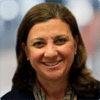
Dr. Paula Muto is the founder and CEO of UBERDOC, and the Director of the Vein Center at Mutosurgical. A graduate of Amherst College and New York Medical College, Dr. Muto is a board certified general surgeon. She completed her surgical training at Tufts and her vascular fellowship at the Lahey Clinic. Paula is an advocate of disruption in healthcare and speaks passionately on many issues. She addesses transparency in healthcare, patient rights and access to the care they need and deserve. Paula and her husband, Dr. Jonathan Gordan, reside in Andover, MA with their two children.
“One of the most powerful developments we are going to witness in the coming decades is the dampening of the medical hierarchy. The traditional rigid structure, where the doctor is expected to be an unquestionable authority, other health professionals silently assist, and the patient has very little say – is going to dramatically change. As healthcare technology gets more sophisticated, democratized and patient-centric, I expect a growing emphasis on medical team collaboration and patient collaboration as a means to achieving higher quality and cost-efficient care.”
www.linkedin.com/in/paulamutomd
Mike Gordan
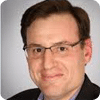
Mike Gordon is the CEO of ArisGlobal, a global life sciences technology provider with innovative and market leading solutions. He also serves as Chairman of its Board since 2020. Mike is a seasoned professional with a well-established background in global leadership roles, mainly within technology-focused organizations. Mike also currently serves on the board of directors of three technology companies, Fintech, Hometrack, and Constructonline. He received a BS in Industrial Engineering / Operations Research from Northwestern University. He then went on to earn an MBA in Finance and Business Economics from The University of Chicago Graduate School of Business.
“We live in an increasingly connected world that has created an explosion of rich and diverse data sets. When combined with artificial intelligence and machine learning, the possibilities of what can be accomplished by the life sciences industry grows exponentially.”
www.linkedin.com/in/mike-gordon-309694b
Nsisong Asanga, MD

Dr. Nsisong Asanga is a physician and Field Epidemiologist.
“1. More automation, more AI use and growth in the digital health sector. This will lead to better diagnostics.
2. More accessible treatments. Many procedures that seem boutique such as Next Generation Sequencing will be more available.
3. An explosion of supplementary medical services such as physician assistants, nursing aides and similar disciplines.”
Related reading: The Future of Ophthalmology: Demand, Technology, and Salaries
Katherine Brown

Katherine Brown is the founder and Marketing Director at Spyic.
“I believe that in the future, medical care will focus more on non-traditional medicine. Doctors will want to know what herbs you are taking so they can prescribe complementary therapies. Western medicine is not enough for everything and never has been, but doctors may be more open to being holistic diagnosticians in the future.
I also believe that doctors will have access to a patient’s entire medical history with just a quick scan of their retina or their fingerprint in the future. Future doctors will be able to take a sample of your saliva, blood, or urine and tell you your current levels of any medications or what disease you are at risk for developing. The future people will not wait until they are sick to see a doctor. They will go at regular intervals to make sure that they are healthy. When people go for their exams, they will also have access to mental health screenings and medical check-ups.”
www.linkedin.com/in/katherine-brown-514b1a217
Conner Goldberg

Conner Goldberg is the Managing Director for Ascension Cloud Solutions. Ascension is a tech-based agency that specializes in digital marketing and software solutions for small businesses. Their goal is tor to assist them with their online presence.
“A few years ago Bill Gates had been pledging money towards the fight against Alzheimer’s disease and creating a more consistent method for early detection/diagnosis. Of course, nothing can be said for certain when speculating about the future of healthcare, but hopefully, later in the decade, we will start seeing medication and therapies that are able to improve treatment for those suffering from the disease.
As our technology starts improving in the following decade (as well as a better understanding of the underlying mechanisms with Alzheimers) utilizing stem cell research, long term clinical trials, reverse-engineering the human brain (a monumental task, but theoretically possible), nanoscale devices (nanobots), etc could see us to finally have an effective way to cure cellular degenerative diseases. Current estimates are probably optimistic stating that we could see this as early as 2036. I personally think there are definitely other hurdles to overcome, but wouldn’t be shocked to find these treatments publically available by 2046.
Dr. Zhaoming Liu, from the Zhejiang University in China, and his team have been testing the combination of calcium phosphate, triethylamine, and a gel to formulate extremely tiny clusters (around 1.5 nanometres). These tests were conducted by fusing the clusters to crystalline hydroxyapatite have shown that it can form structures that were stronger and more tightly organized than research efforts in the past. This method is also more affordable to the public and has the potential to grow widely within various dental practices around the world. Of course, more rigorous research will be required, but the results are promising with human trials expected to be taking place within the next couple of years and actual usage within the next decade.
25 years is a long time to think about with respect to how quickly our technology is able to evolve. Society has produced a higher standard of living within the past 100 years than it has 1000 years previous. We are still very much at the birth of our technological genesis and I expect that we will be amazed at how far we have come 25 years from now.”
www.ascensioncloudsolutions.com
Max Schloemann
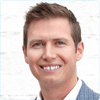
Max Schloemann is a medical malpractice insurance broker, focused on helping physicians secure medical professional liability coverage. He helps medical professionals and healthcare entrepreneurs launch new medical practices across the country.
“My prediction is that in 25 years, telemedicine will be seamlessly integrated with in person visits. The need for physical exams and the human connection of healthcare being provided face to face will never go away. Robotic assisted surgeries will be mainstream, and doctors will continue to sub-specialize. Patients will be better informed and disciplined when it comes to following physician recommendations for nutrition, exercise, medication adherence, and other lifestyle choices patients make. Concierge medical providers will serve their patients unique needs and preferences and the demand for innovative private practices will be greater than ever.”
www.linkedin.com/in/max-schloemann-14469823
Heather Benoit

Heather is the Senior Managing Director of Strategic Foresight, Strategic Government Resources. She is an innovation and foresight expert. Heather is passionate about strategically creating better futures and finding solutions to the world’s most complex challenges.
“We’re approaching a very exciting time in medicine. In the future, medicine will be more personalized, adaptive, and proactive. The three core technologies of AI, IoT, and 5G will enable a technological shift that moves the field of medicine from diagnosing symptoms to preventative health that actually works. As this technology becomes more pervasive, everything we do will be tracked – utensils will measure what we eat, wearables will monitor physiological metrics, algorithms will interpret our mood and mental health. Thousands of devices will track our health, the health of our peers, and the environmental conditions that surround us and feed the information into massive shared databases.
All of this data works synergistically with our growing understanding of genetics, nutrition, and behavioral economics, which points to a future focused on much more holistic healthcare. It’s a systemic approach to medicine that can account for all of the myriad factors that collectively influence our health and wellbeing.
Medicine of the future lends itself well to healthcare platforms that are built on 24/7 health monitoring services rather than intermittent diagnosis. Why wait until you’re visibly and noticeably sick to seek help? AIs will be able to analyze and flag weak signals pointing to health issues before they become problems. Intervention will come sooner and outcomes will improve as a result. And, I think, health will start to drive more of our behavior as the data matures. It’s not much of a stretch to consider healthcare interventions of the future being delivered through an AI on your phone. For example, if you’re diabetic and trying to lose weight, your personal AI could warn you not to order that piece of cake… or, with digital menus, remove it from the list of options entirely.”
www.facebook.com/strategicgovt
Daivat Dholakia
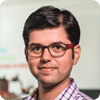
Daivat is the VP of Product and Growth at Essenvia.
“I see two paths that medicine can take at this point. On one path, there is more technology, with AI making diagnoses and human doctors relying more and more on technology than on their schooling, so to speak. The other path is the exact opposite of that. People, in general, have a love/hate relationship with the medical industry and I think trust in that system has been greatly shaken over the past year or so. I can also see a return to a simpler form of medicine, where people rely on more Ayurvedic methods to cure what ails them. I don’t necessarily think either path is bad, just different paths to achieve the same goal.”
Devon Fata

Devon is the CEO & Founder of Pixoul.
“Most of the developed world has a huge glut of aging people working their way through the demographic curve. The medical industry is going to need to adapt in order to handle the increase in those needing long-term care for chronic conditions and the relative decrease in the working-age population. I expect to see a big increase in telemedicine and a radical rethinking of nursing homes in order to adapt to this.”
David Rabin, MD, PhD
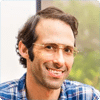
Dr. David Rabin is a board certified Psychiatrist & Neuroscientist. He is also the Co-Founder & Chief Innovation Officer at Apollo Neuroscience.
“The future of healthcare is digital, functional, and psychedelic, whereby we use tools (in order of least risky first starting with empathic listening, touch, movement, nutrition, wearables and digital interventions, followed by psychedelic-assisted psychotherapy (ketamine) and other prescription medicines as needed) to empower each individual to recognize and nurture their innate abilities to heal themselves. Wearables and Psychedelic medicines like ketamine, particularly when used along with skilled psychotherapy, can rapidly accelerate this self-recognition, acceptance, and nurturing process and the data we collect is invaluable to furthering our understanding of mental illness and wellbeing more generally. This approach of empowering each person to recognize and activate their potential to heal themselves and grow is necessary to create a sustainable model for healthcare that will care for us throughout the next 25 years without bankrupting us (or or our government) in the process.”
Yessica Avancena

Yessica Avancena is a Medical Advisory Board Member at Delic Corp.
“Specifically with regards to mental health and psychotherapy, what the field traditionally has had to offer such as psychotropic medication and talk therapies to help alleviate such issues as persistent depression, anxiety and suicidal ideation in both teens and adults seem to come up short of the desired results. People today want true healing and new ways to access those parts of themselves that either have been difficult to open up or access such as compassion, self-love and forgiveness, which non-ordinary states of consciousness such as psychedelic-assisted psychotherapy seems to be consistently delivering. There is no denying the transformational experiences some of these new healing medicines combined with psychotherapy can achieve in a short amount of time. These new modalities will certainly be household treatments in the years to come given their great promise in early research studies.”
www.deliccorp.com (now defunct)
Anita Petty
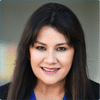
Anita is the author of Money Switch: Flipping Yourself Onto Happiness, Health and Wealth. She is also a consultant, life coach, investor, and speaker. Her life and work experiences are diverse. They include service as a military officer, pilot, start-up founder, corporate manager, cryptocurrency and real estate investor.
“1. Blockchain technology will enable the sharing of medical data for critical care patients. Imagine the unconscious, auto accident victim who is admitted to the ER with multiple injuries. Unable to speak, the patient is not able to inform ER staff of underlying medical conditions that can affect treatment choices. But with the coming advances in blockchain technology, we will have the ability to securely share medical records with doctors and teams globally to treat such trauma cases. Patient privacy will be maintained as only key, pre-registered emergency medical staff will be authorized emergency access.
2. One-stop treatment facilities will emerge as a preferred method of health and personal care. Aesthetic, dental, and medical procedures will be handled under one umbrella, allowing clients to choose from a digital menu of services: from cosmetic injectables, tooth aligner treatments, and massage therapy to routine medical and dental checkups. Bundling of such offerings will enable medical and service professionals to give customers the convenience of one-stop shopping while lowering their shared overhead costs.
3. Medicine of the future will embrace non-invasive, non-traditional healthcare and wellness modalities as alternatives to current protocols. Cryotherapy, red-light therapy, oxidative stress relief and many other treatment options will be accepted and encouraged as humanity gains a greater understanding of their health benefits.”
www.linkedin.com/in/anita-petty-0163371a7
Stephen Curry

Stephen Curry is an entrepreneur and the founder & CEO of CocoSign.
“The line between the Pharmaceutical and Medical sectors will be blurred. Today, we can see a lot of telemedicine options emerging in the digital landscape. Selling and delivery of medicines through eCommerce stores is also picking up. Within 25 years, these two fronts will become one. By this, I mean that not only the doctor consultation and pharma services will be provided online, but there will also be websites in abundance that will offer consulting-to-medicine services to customers in need. The use of AI and the advancement of tools in the healthcare industry will continue at the same pace. However, even after it all, there will still be hospitals with surgeons, doctors, and patients, trying to cure diseases or operate patients like they do today.”
www.linkedin.com/in/stephen-curry-2b6253218
Alex Prevallet, DO

Dr. Alex Prevallet is the Chief Medical Resident for Internal Medicine at Scripps Mercy Hospital.
“Whole-genome sequencing has been talked about for many years, but we see many startups in this field. It cost 3 billion dollars to sequence the first genome in 2003, but now costs less than $1,000, and in coming years will likely be cheap enough for every patient to have this done.
The quantified self. We are now seeing tons of startups that are attempting to quantify health. Oura ring and Apple watches are great for monitoring sleep, and the new Apple watches can check O2 levels reasonably accurately. We see the expansion and rapid reduction in the price of devices like Dexcom, which monitor blood glucose in almost real-time. In the next 25 years, there will likely be devices on the market that will monitor blood pressure, glucose, O2, and HRV. With the advances in machine learning and the abundant data these will provide, it’s likely your future Apple watch could inform you that you are on the road to a heart attack several years before it happens. These devices may even be able to tell if you’re having a heart attack at the moment and contact EMS for you.
What excites me most about medicine at the moment is the emergence of the longevity field. We are now seeing reasonable and large amounts of money being devoted to solving the problem of aging itself. Dr. Nir Barzilai and his colleagues are performing the TAME trial, using Metformin to target aging as its primary endpoint. Many other therapies are being worked on, like analogs to rapamycin, another promising antiaging drug. In the next 25 years, I believe we will see the first drugs come to market that targets aging itself and will increase the lifespan and healthspan of people.”
www.linkedin.com/in/alexander-prevallet-0a92609a
Brett Vokey

Brett Vokey is the founder & CEO at BreatheSuite.
“The COVID-19 pandemic underscored that it’s time for virtual care and Remote Patient Monitoring (RPM) to take a front seat in providing better, more transparent patient care. I anticipate the healthcare industry will continue to move significantly in this direction. For chronic disease patients everywhere, allowing physicians to remotely manage their condition, as well as empowering them with tools to better self-manage, has been largely successful. Home-based interventions and connected devices have proven to reduce the burden on conventional health systems and save scarce in-person healthcare resources for those that need them most.
For example, patients and physicians embracing remote monitoring systems can improve quality of care and reduce the economic burden associated with managing respiratory conditions like asthma and COPD. For the tens of millions of people in the U.S. alone that use a Metered-Dose Inhaler (MDI), 90 are using it incorrectly; 66 are not adherent to the medication as prescribed (skipping doses, etc.). Inhaler misuse makes up about $5- $7 billion of the approximately $25 billion spent on inhalers annually.
To date, the gold standard for correcting inhaler technique errors has been visual observation by a pharmacist or physician – which is obviously not possible most of the time. Connected respiratory devices turn an MDI in to a smart inhaler that can track, score, and provide cloud-based feedback on inhaler technique and adherence to the user and, with consent, their physician to support behavior change strategies and enable interventions by their care provider if needed.
A new category of remote monitoring CPT codes proposed by the CMS – for Remote Therapeutic Monitoring (RTM) – are part of the 2022 Medicare Physician Fee Schedule. These are intended to expand the scope and reach of remote monitoring by reimbursing the monitoring of non-physiological data, for example by using passive monitoring system like inhaler sensors instead of non-passive measurements like spirometry or pulse oximetry. This is important, as data not considered physiological could inform better decision making in pharmacological care, and therefore is equally as important as reimbursement for physiological data.
Within the next 25 years, driven by connected technology advancements and the CMS’ growing acknowledgement of the value of remote monitoring, I predict the need for cluttered waiting rooms for routine exams and a ten-minute doctor’s appointment becoming a two-hour commute will be largely gone in favor of RPM/RTM to support better care and improved patient outcomes. I also think the use of digital health/connected health data to drive better clinical decision making will become essential, and not just be an additional convenience.”
www.linkedin.com/in/brettvokey
Jae Pak, MD
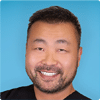
Jae Pak is a degreed engineer, accomplished artist and MD with over 15 years of Hair Restoration experience. He combines his technical and artistic skills with his background in emergency medicine. This gives his patients the best possible results. As an engineer, he helped design the first robotic FUE machines and instruments. He is among the first to pioneer the Scalp MicroPigmentation procedure in the United States. Dr. Pak holds eight U.S. Patents in the field of hair restoration. People come from around the world to enlist his help to overcome their hair challenges.
“Technology is where we are going to see the most advancement when it comes to healthcare, and the technologies we are developing today could lead to treatments and cures for diseases and ailments that previously had no cure. For example, hair loss was an ailment that previously had no cure, but with modern technology, we are able to provide transplants to the scalp and reverse hair loss in many circumstances. This can also help combat symptoms to more serious conditions in the future, such as alopecia. Currently, there are medications that slow the hair loss process, including Minoxidil and Finasteride, but they are only prescribed on a case by case basis, still leaving others with less options. We will likely see more treatment options for ailments that were previously unheard of, and will be more accessible to the public.”
Jabran Kundi
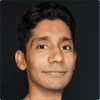
Jabran Kundi is a financial writer at TheStockDork.com.
“I believe that machines will take over the healthcare sector. It’s not difficult to imagine surgeries carried out by efficient and almost error-free robots. Although a machine might not function as well as a human, let’s hope that top-notch machines that outperform human abilities are created. A US firm by the name ‘Intuitive Surgical’ is already making great advancements in the field.
I believe enormous advancements in chemotherapy against cancer would have been made. The cancerous cell is one that I find fascinating as I consider them ‘smart’. When you hit some cancerous cells with drugs that act on a particular pathway, these cancer cells grow via another pathway. I believe drugs that destroy even the worst of cancers, would have been developed.
I also predict that the deadly HIV will be no more than a common cold virus is. Malaria was once a killer disease but can now be tackled with over-the-counter drugs. We’ve come a long way in the management of HIV/AIDS and I expect that HIV would be an easy opponent in 25 years.”
www.linkedin.com/in/jabrankundi
Rajinder Chahal, MD
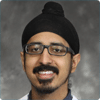
Rajinder Chahal is certified in both internal medicine and endocrinoogy. He is also the co-founder of WhiteCoatRemote.com, a telemedicine-exclusive jobs board.
“Telemedicine has obviously exploded during the pandemic and most healthcare professionals believe it’s here to stay. What is perhaps not as widely recognized is that in the very near future we’ll almost certainly look back at the simple video and text communication that have become widespread during the past year as we look back today at the telegram and the Model T. We are at the very beginning of an era of ubiquitous wearables, 24 hour remote monitoring, and big data.
All of these factors will mean that an algorithm will know we’re sick before we do. This will be a great advancement for our patients as it has the potential to shift treatment more towards prevention and personalization. At the same time, we have to be vigilant that barriers to access with regard to this new technology don’t exacerbate the already troubling racial and economic disparities found in our healthcare system today.“
www.whitecoatremote.com
www.linkedin.com/in/white-coat-remote-8ba93b1a7
We don’t have a crystal ball for the future. However, the insights shared by these professionals paint a captivating picture of the future of healthcare in the next few decades. Their collective wisdom underscores the transformative potential of technology, patient-centric care, and interdisciplinary collaboration. From AI-driven diagnostics and precision medicine to the integration of virtual reality and telemedicine, the possibilities seem boundless.
Amidst the technological advancements, the human touch and empathy remain indispensable. This reminds us that healthcare will always be about healing and caring for individuals. The medical landscape may evolve over time, that is a given. But the unwavering dedication of doctors to help people remains a timeless and enduring aspect of the healthcare profession.
At Physicians Thrive, we understand the immense dedication you, our phyicians, pour into your profession. Just as you vow to look out for your patients’ best interest, we vow to look out for yours. We are your advocate and can assist you in making informed decisions about your financial future. Contact us today.
Subscribe to our email newsletter for expert tips about finances, insurance, employment contracts, and more!

